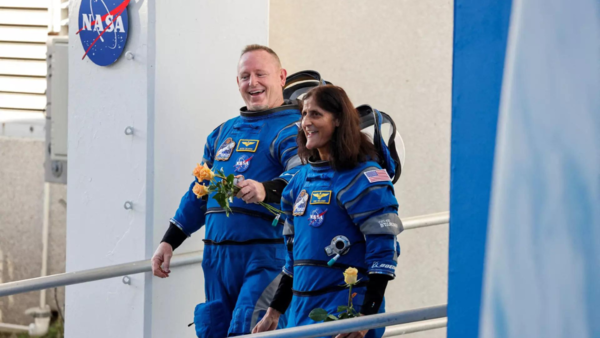Prolonged exposure to microgravity and radiation are likely to affect the health of the astronaut duo. As per reports, Williams is experiencing eyesight problems in the International Space Station. The duo had undergone few tests recently. “NASA astronauts Butch Wilmore and Suni Williams, Commander and Pilot for Boeing’s Crew Flight Test, tested the use of an ultrasound device with software guidance instead of remote guidance from doctors on the ground. The duo conducted bladder and kidney ultrasound scans to demonstrate autonomous medical procedures in space and inform future crewed missions to the Moon, Mars, and beyond,” NASA has said.
Eyesight issues due to microgravity
Reportedly, Sunita Williams is experiencing Spaceflight Associated Neuro-ocular Syndrome (SANS) a condition observed in astronauts that affects the eyes and brain during and after extended space missions. It is characterized by changes in vision, increased intracranial pressure, and structural changes in the eyes. The condition is a significant concern for astronauts as they spend more time in microgravity environments.
In microgravity, bodily fluids, including cerebrospinal fluid, shift towards the head, which can increase intracranial pressure and put pressure on the optic nerves. This can lead to changes in the shape of the eyeball, particularly flattening of the posterior segment, and can affect the function of the optic nerve, resulting in visual disturbances. The symptoms can persist even after returning to Earth.
Decrease in muscle mass and bone density
Another significant risk for astronauts is the impact of microgravity on the human body. Prolonged exposure to weightlessness causes a decrease in muscle mass and bone density, a condition known as spaceflight osteopenia. In microgravity, the musculoskeletal system does not experience the same stresses as it does on Earth, leading to bone loss.

Microgravity affects the functioning of the heart
Another major concern is the cardiovascular system. In space, fluids shift towards the head due to the lack of gravitational pull, causing changes in blood volume and pressure. This can lead to cardiovascular deconditioning, where the heart becomes less efficient at pumping blood, and astronauts may experience orthostatic hypotension—a drop in blood pressure upon standing.
Exposure to radiation
Space environments also expose astronauts to higher levels of cosmic radiation compared to Earth. This increased radiation exposure raises the risk of cancer and other radiation-related health issues. Space agencies monitor radiation levels and provide shielding in spacecraft to minimize exposure, but long-term effects remain a concern.
Source link
Modified by Maaaty at Cheap Generic Pharmacy

